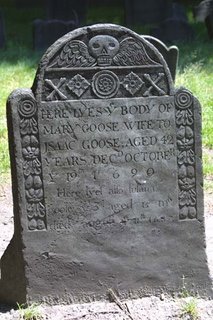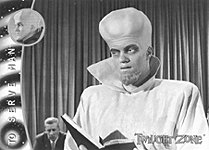Til Death Do Us Divorce

PITTSBURGH — Dr. John Yelenic and his wife separated in 2002, agreed to a divorce and even hammered out a property settlement.
But the Blairsville dentist was slain the day before he was to sign his divorce papers, setting the stage for what attorneys say is a first-of-its-kind request in Pennsylvania: a divorce decree after death.
The dentist's divorce attorney, Effie Alexander, says simply that Yelenic would have wanted it that way. Another attorney who represents Yelenic's estate believes the decree is needed to protect a property settlement an Indiana County judge approved last week.
But an expert in Pennsylvania family law says there is no reason to declare a dead man divorced because the dentist's wife and adopted son will receive support under the property settlement, which legally overrides his will.
"What difference does the decree really make?" said Pittsburgh attorney Jay Blechman, chairman of the family law section of the Pennsylvania Bar Association. "As far as I can tell, there isn't a difference."
Alexander isn't so sure.
"We are, along with the estate attorney, conducting research to determine if there's any significance to the decree being denied," she said.
Officials in at least one other state are grappling with posthumous divorces.
In Connecticut, Hayley Kissel is seeking to divorce her estranged husband, Andrew, a millionaire developer found slain in his Greenwich home last month. Millions of dollars are at stake.
Judge Kevin Tierney said Friday a death doesn't necessarily mean the marriage has been dissolved and suggested the case could end up in the court's complex litigation section if it is not resolved.
In Pennsylvania, Indiana County Judge Carol Hanna refused to issue the divorce decree after a May 19 hearing, but gave the dentist's divorce attorney until June 2 to file written arguments on why one should be issued.
"From my perspective, this is what John wanted," Alexander said. "You know how people say after someone is dead, `If there was one thing I could do for him now'? Well, this is really a personal thing for me and my law firm."
Yelenic and his wife, Michele, of Indiana, Pa., married in 1997 and adopted a son, J.J., now 8. The couple separated in 2002 and Michele Yelenic filed for divorce the next year, citing an irretrievable breakdown of the marriage.
John Yelenic, 39, was slain at his home on April 13. Investigators have not identified a suspect but believe his death was not random. They have refused to say how he died, other than that he bled to death after a violent attack.
The strange case of the Yelenics' divorce revolves around a January 2005 amendment to the state's divorce code and the implications of a bifurcated, or two-part, divorce _ one in which the divorce decree is issued separately from a property settlement.
A two-part divorce is used, for example, when a person wants to remarry without having to wait for the property settlement _ which is often far more complicated _ to be resolved, Blechman said.
Before the change in the law last year, the dead spouse's will or estate laws held sway if a property settlement hadn't been finalized, Blechman said.
Under the amendment, a judge can posthumously enforce a property settlement if grounds for the divorce existed when the spouse died. Judge Hanna approved the settlement based on an affidavit Yelenic had signed saying the couple have lived apart for more than two years, which is grounds for divorce in Pennsylvania.
Michele Yelenic's attorney, Daniel Lovette III, declined comment on the case. But Lovette said he doesn't oppose efforts by Alexander, the dentist's divorce attorney, and Paul Anthony Bell II, the estate attorney, to seek the posthumous divorce decree.
Bell sees the divorce decree as a way to tie up loose ends.
"It seems to everybody that the divorce decree being granted would definitely put a seal on" the property agreement, Bell said. "I guess we're all leery that something might come up as to the estate aspect of it if the decree is not granted."
Source: AP

